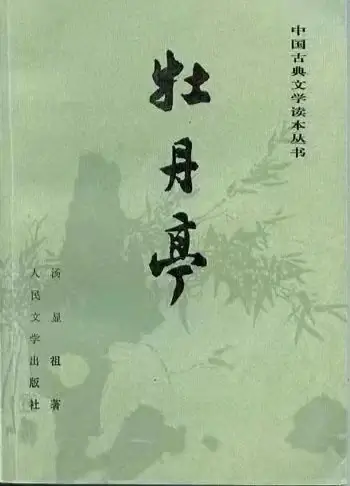A romantic masterpiece in Chinese opera history
Overview
Chinese Name: 牡丹亭
English Name: The Peony Pavilion
Other Name: The Return of Soul at the Peony Pavilion 牡丹亭还魂记
Author: Tang Xianzu 汤显祖
Originally Published: In 1617 (Ming Dynasty 明朝)
Genre: Legend
Brief Introduction of The Peony Pavilion
The Peony Pavilion 牡丹亭, a masterpiece of Romanticism in the history of Chinese opera, was written by Tang Xianzu 汤显祖, a Ming Dynasty 明朝 playwright. The play describes the story of Du Liniang 杜丽娘, daughter of an official, falling in love with Liu Mengmei 柳梦梅, a scholar in her dream. Du Liniang died of a broken heart and turned into a soul to find her lover in reality. She fell in love with a ghost and a man, and finally came back from the dead and married Liu Mengmei forever.
It is one of the four classical operas in China together with The Romance of the Western Chamber 西厢记, The Injustice to Dou E 窦娥冤 and The Palace of Eternal Life 长生殿.
Du Liniang is beautiful and sentimental. She is the beginning of love period, but for the feudal ethics of the home imprisoned, can not get freedom and love. Du Liniang yearned for love in her heart. One day she dreamed that a scholar came to her with a willow branch and asked her to compose poems. Then he carried her to the Peony pavilion and made love to her.

When Du Liniang woke up, she knew it was a dream. After that, she went to the Peony Pavilion again in search of her dream, but did not see the scholar. She died of depression. Her father buried her in the back garden under the plum tree, and repair into a plum nunnery view. After Du Liniang died, the judge saw her die for love, and found out the marriage book, she and Liu Mengmei married. The judge approved Du Liniang return to earth.
At this time scholar Liu Mengmei went to Beijing 北京 to take an exam, on the way to live in plum blossom nunnery. He meets the wandering spirit of Du Liniang. Two people boon conjugally love and lived husband and wife life. Liu Mengmei asked people to dig the grave of Du Liniang, Du Liniang rose from the dead. Two people did true husband and wife and came to Kyoto 京都 together. Liu Mengmei took part in the Jinshi 进士 exam.

Liu Mengmei, who claimed to be Du’s son-in-law, was believed by Du Liniang’s father to be talking in his sleep because his daughter had died three years earlier. Du Liniang’s father was going to behead Liu Mengmei. The imperial court sent a report that Liu Mengmei had passed the no.1 yuan examination. Liu Mengmei was saved. With the help of the emperor, his father knew that Du Liniang had risen from the dead. The last part of the life and death, resurrected marriage story so happy ending.

Author of The Peony Pavilion
Tang Xianzu (1550-1616), born in Linchuan County 临川市, Jiangxi Province 江西省, was a playwright and writer in the Ming Dynasty.

At the age of 2l, Tang Xianzu passed the exam of Juren 举人, and at the age of 34, he entered Jinshi进士. He successively served as the doctor of Nanjing Taichang Temple 南京太常寺, the chief book of The House of Zhan 詹事府, the chief priest of the Temple of Rites, etc. He was banished to Xuwen County 徐闻县 in Guangdong province 广东省 for his fierce criticism of the government. Two years later, he was transferred to Suichang 遂昌, Zhejiang 浙江省. He cared about people’s livelihood. At the age of 49, he abandoned his official position and returned to his hometown.
Tang Xianzu opposed The Neo-Confucianism of Cheng and Zhu 程朱理学, criticized the literature of antiquism, and pursued the emancipation of individuality. His masterpieces are the Peony Pavilion, The Purple Hairpin 紫钗记, The South Ke 南柯记 And Handan 邯郸记, etc.
Excerpts From The Peony Pavilion
不提防沉鱼雁鸟惊喧,则怕的羞花闭月花愁颤
She had the beauty of Xi Shi and Wang Zhaojun, but wasted her time.
莺逢日暖歌声滑,人遇风情笑口开。
The birds’ voice is particularly pleasant in spring, and people smile when they meet their lovers.
情不知所起, 一往而深。 生者可以死, 死者可以生。
Love do not know when already in the heart, very persistent and deep. People can die for love or live for love.
Evaluation of The Peony Pavilion
The Peony Pavilion is thrilling and clever, and every scene is so original that it is a masterpiece of ages.
Lv Tiancheng 吕天成
As soon as the Peony Pavilion came out, people passed it down from family to family, but few people went to see The Romance of the Western Chamber.
Shen Defu 沈德符









